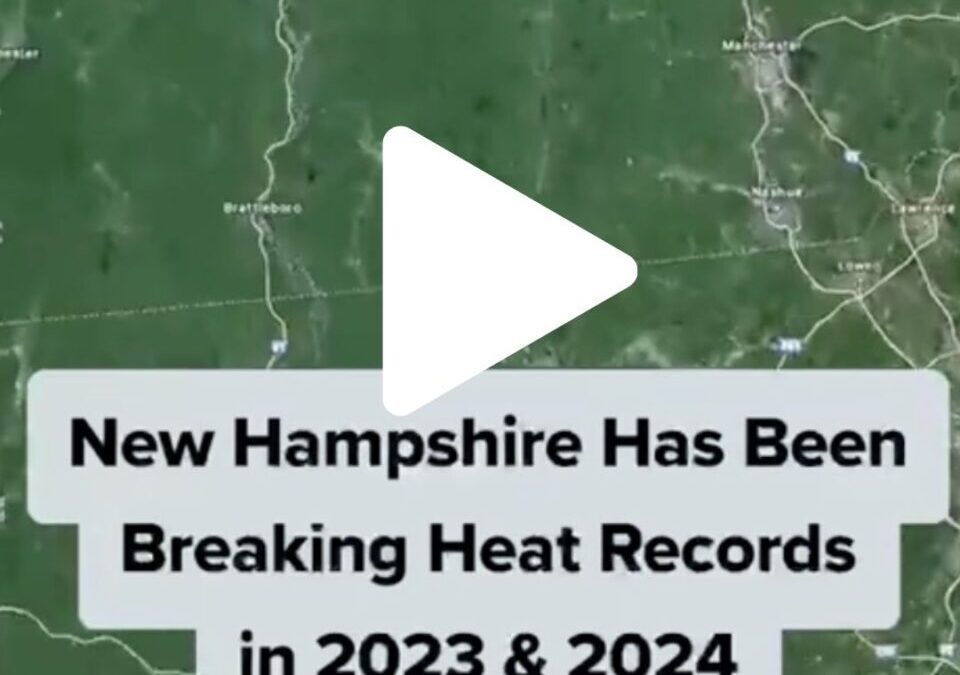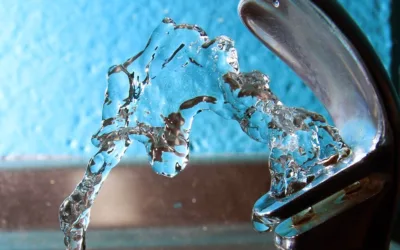
Concept of earth protection day or environmental protection hands to protect the growing forest
Earth Day is April 22 and it’s a great time to check in on our state’s environmental health. In New Hampshire, you can check air quality data and air quality forecasts online every day.
Checking on the health of our drinking water is a bit more complicated. Those on public water systems have their water tested regularly, by the state, using federal standards. But those with homes using well water—which are half the homes in the state—have to pay for their own testing.
In “What’s in Your Water?” the state’s online guide to well water testing points out that unhealthy levels of contaminants “are common in many private wells in New Hampshire … some have been linked to cancer and other diseases. Most have no taste, smell, or color.” Homeowners using well water and prospective home buyers are urged to have their well-drinking water tested every three to five years through the state’s Water Analysis Laboratory or a state-accredited lab, the cost of which is the homeowner’s responsibility.
Testing at the state lab costs $85 to $105 depending on the type of well. Testing through commercial laboratories can range from $20 for basic strips to test for lead to full lab analyses which range in the $180 to $500 range. Home test kits can also be purchased at stores or online for $20 for a basic lead test strip to $200 to $500 for comprehensive kits. Here is a list of state-accredited labs.
The State Environmental Protection Department depends on citizens “to provide extra eyes and ears to detect potential environmental violations” and has a system for people to lodge complaints about water and air quality, accidental spills, waste storage, and disposal, public bathing facilities, surface water, wastewater, well water and problems with discrimination, wetlands, shorelands, and land use.
To understand how our state’s climate is changing, you can read the New Hampshire Climate Assessment 2021 and the 2017 NOAA Report, which note how our state’s climate has changed over the past century and how the future climate of the region will be affected by warming temperatures created by human activities. The 2024 New Hampshire Priority Climate Action Plan includes a detailed, state-level greenhouse gas emissions inventory and a list of priority measures that could reduce the state’s greenhouse emissions. Also, the New Hampshire State of Air Report provides an update on the overall air quality status in New Hampshire, an overview of how air quality has changed over past decades, and a discussion of why some air pollutants are of greater concern than others for New Hampshire.

Rural New England Needs EV Chargers to Keep Tourism Revenue Flowing. The Trump Administration Is Making It Harder to Build Them.
By Julia Tilton/ Daily Yonder When Charyl Reardon needs to charge her electric vehicle quickly, she has to leave her home in New Hampshire’s White...

Opinion: Our Solvable Climate Crisis
If you’ve been outside this summer, you know how hot it’s been lately. The heat and humidity has stretched long into the evening hours, making 2024...

VIDEO: 2023 and 2024 Has Record Breaking Heat For NH
Remember those white Christmas winters? ☃️ You’re not going crazy, the weather IS warmer than when you were a kid. 2024 is hypothesized to be the...

How to apply for a job in the American Climate Corps
The Biden administration announced its plans to expand its New Deal-style American Climate Corps (ACC) green jobs training program last week. ...

Biden marks Earth Day by announcing $7 billion in solar grants
The Biden administration on Monday announced the recipients of its Solar For All Program, a $7 billion climate program that aims to lower energy...

Stricter PFAS limits set to safeguard New Hampshire’s drinking water
The Biden administration announced last week that, for the first time ever, the Environmental Protection Agency (EPA) would begin to regulate a...





